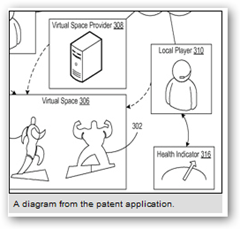I was really happy to see this write up in Xconomy as I feel like the lone ranger out here sometimes with some of my posts. The way we establish, file and enforce Intellectual property is due for a major overhaul, I agree. So much of this is tied up in courts for years and right now it stands to hold back useful technology and financial advancements as well.
Pharma is pretty much resigned to the fact that those “blockbuster” patents are not as easily available as what they used to be. Ask Merck for one as they are being sued by Teva, why because they can in order to get a generic drug on the market sooner. With money and cost savings being up front, this is the focus.  Teva is winning some of these cases too and has a few ongoing in order to produce a cheaper generic drug.
Teva is winning some of these cases too and has a few ongoing in order to produce a cheaper generic drug.
Generic Prevacid SoluTab Is Here – Teva Wins Court Battle on Patent Challenge For Heartburn Drug
Its kind of sad when we need access to medication and it is tied up in litigation in some instances. I saw this coming a while back and have repeatedly stated we need “algorithmic centric laws” or perhaps a “Department of Algorithms” as that is pretty much what Intellectual Property is all about, it’s those algorithms once more. Insurance companies, banks they use them, but keep them under lock and key, but others need patents for software and technology and/or drugs that are to be used by professionals and consumers. There are other areas that roll over into healthcare too, like Microsoft wanting to make sure you have a fat avatar if you are fat, an incentive to lose weight maybe. This is all software.
Microsoft Patent Filed – Using Health Records to Generate Your Avatar
IBM has filed for a patent that will use a remote to “tweet”. Bill Gates files for a patent on intelligence to stop hurricanes.
There really is one patent I would like to see Microsoft get and soon, to have no cell phone zones, shut them up in movies.
Microsoft's device manners policy patent enforces "no-talking zones"
We are just to the point where these need to go digitally and algorithmically formatted, who in the heck can read 3000 pages of a healthcare bill, and then add on 500 plus pages of meaningful use statutes. We have all posted about how ridiculous this is and nobody really reads all of, so why do we do all of this in antiquated formats, for the attorneys?
“Department of Algorithms – Do We Need One of These to Regulate Upcoming Laws?
We keep talking about digital health records, well let’s get some digitally filed patents in place for Intellectual Property while we are at it and quit focusing on what is happening to Tiger Woods for a while. Social media structures that we use and rely on are helping bring this to light as well. BD
All these areas of technological innovation are unified by the challenges and opportunities arising from their underlying intellectual property framework. With the “innovation economy” serving as the future driver of our economic well-being, and technological solutions central in finding solutions in energy, health, communications and more, IP has become the critical rudder for the 21st century economy. Alongside our focus on the specific innovations that we will see in the coming decade, we need to more transparently and aggressively understand, expand, address and deploy IP models and methods.
We now must build on those advancements to more effectively educate broadly what intellectual property means to both individuals and our society. We now must address some of the toughest great debates troubling the field (and the related technologies), such as the fundamental conflicts over online content, the appropriate role of IP protection in the context of global health and development, or the rights and obligations that arise from supra-sovereign technology solutions arising in energy and climate change. We now must also be more creative in using IP as a tool for further progress, innovation and positive social change, instead of primarily a defensive sword for protection of vested interests.
How all this will play out in the coming decades remains unclear. But I would place a big bet that at least as much attention, debate, and opportunity for change and innovation exist in how we think about and manage ownership and distribution of technology, as in the technologies themselves. As we commence the second decade of the 21st century, more attention, analysis and education should be paid to this defining characteristic of our times.
The Intellectual Property Century | Xconomy



0 comments :
Post a Comment